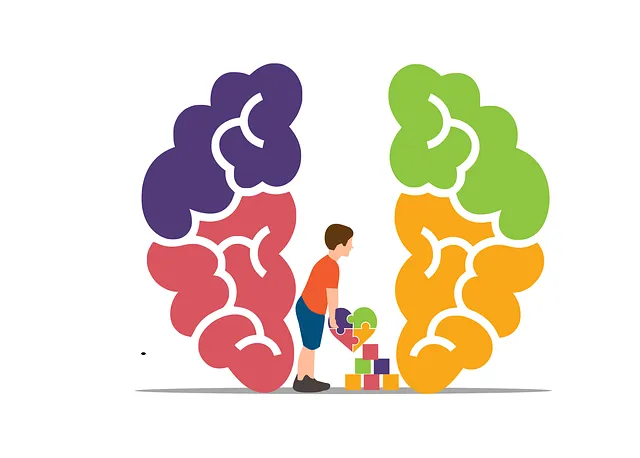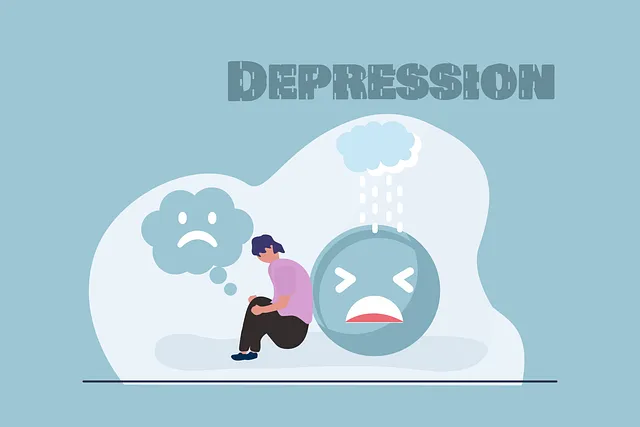Public Awareness Campaigns (PACs) are strategic tools used by organizations like Kaiser Permanente in Lone Tree to educate and engage citizens about critical issues, with a focus on burnout prevention and emotional regulation to address rising mental health concerns. These campaigns raise awareness, destigmatize conversations, and provide resources through creative communication channels, fostering a healthier community. Evaluating these initiatives is crucial using metrics such as service utilization, patient outcomes, and community engagement to refine future campaigns and allocate resources efficiently, tailored to the needs of Lone Tree residents searching for "mental health services Lone Tree."
Public awareness campaigns play a vital role in educating communities about critical issues, such as mental health. This article delves into the development of effective initiatives, exploring strategies and case studies like Kaiser Permanente’s approach in Lone Tree, where they foster engagement. We dissect key objectives, from raising recognition to encouraging support. Additionally, we emphasize the importance of measurement, examining methods to evaluate the impact of these campaigns, ensuring their success and long-lasting benefits for communities in need.
- Understanding Public Awareness Campaigns: Definition and Objectives
- Strategies for Effective Mental Health Campaign Development
- Kaiser Permanente's Approach to Community Engagement: A Case Study
- Measuring Success: Evaluating the Impact of Public Awareness Initiatives
Understanding Public Awareness Campaigns: Definition and Objectives

Public Awareness Campaigns (PACs) are strategic initiatives designed to educate and engage communities on specific issues or causes. These campaigns play a pivotal role in shaping public opinion, behavior, and decision-making. The primary objectives of PACs include raising awareness, promoting understanding, encouraging action, and fostering positive change. For instance, organizations like Kaiser Permanente use PACs to highlight critical health topics, such as mental health services available in Lone Tree, aiming to destigmatize discussions and improve community well-being.
In the context of Public Awareness Campaigns Development, focusing on burnout prevention and emotional regulation is becoming increasingly essential. These campaigns address the growing need for mental health support by providing resources, sharing strategies, and offering platforms for open conversations. By utilizing creative communication channels, organizations can effectively convey messages that resonate with diverse audiences, ultimately contributing to a healthier and more resilient community.
Strategies for Effective Mental Health Campaign Development

Public awareness campaigns play a pivotal role in promoting mental health, especially in communities like Lone Tree where access to services is available through organizations such as Kaiser Permanente. For these initiatives to be effective, a multi-faceted approach is crucial. Firstly, focus on Burnout Prevention Strategies for Healthcare Providers, as caregiver well-being directly impacts service quality. Engaging and educating the community about Inner Strength Development and Mindfulness Meditation can foster resilience and self-care practices among residents.
Visuals and storytelling are powerful tools; utilize them to share real-life experiences, dispel myths, and normalize conversations around mental health. Incorporate these strategies into community events and local partnerships to ensure widespread reach and engagement. Remember, a well-informed public is better equipped to recognize and support one another’s mental health needs.
Kaiser Permanente's Approach to Community Engagement: A Case Study

Kaiser Permanente, a renowned healthcare organization, demonstrates an innovative approach to community engagement in Lone Tree, focusing on mental health services and fostering emotional well-being. Their strategy involves more than just providing clinical care; it’s about creating a supportive environment and empowering individuals with Mind Over Matter principles. By organizing workshops, support groups, and educational sessions, Kaiser Permanente aims to enhance resilience building within the community.
This case study highlights their successful integration of Emotional Healing Processes, encouraging open conversations around mental health. Through these initiatives, they not only address immediate concerns but also cultivate a culture where individuals can thrive, demonstrating that access to quality mental health services is pivotal for the overall well-being of Lone Tree residents.
Measuring Success: Evaluating the Impact of Public Awareness Initiatives

Evaluating the impact of public awareness initiatives is crucial to understanding their effectiveness in promoting mental health services like those offered by Kaiser Permanente in Lone Tree. Metrics such as increased service utilization, improved patient outcomes, and enhanced community engagement can indicate success. For example, a campaign focused on Burnout Prevention among healthcare providers could measure success through reduced rates of professional burnout and improved job satisfaction, reflecting enhanced cultural competency training.
Self-Awareness Exercises targeted at the general public might show positive results in terms of heightened mental health literacy and willingness to seek support. These evaluations are essential for refining future campaigns and ensuring that resources are allocated efficiently. By analyzing data related to these keywords—such as search trends for “Mental Health Services Lone Tree” and feedback from community members—organizers can tailor their strategies, ultimately fostering a more informed and supportive environment for mental well-being.
Public awareness campaigns play a pivotal role in educating communities and fostering positive change. By understanding the definition, objectives, and various strategies, organizations like Kaiser Permanente can develop impactful initiatives. The case study of Kaiser Permanente’s community engagement efforts in Lone Tree highlights successful collaboration and access to mental health services. Measuring success through evaluation ensures these campaigns remain effective and adapt to evolving needs, ultimately enhancing public well-being.






